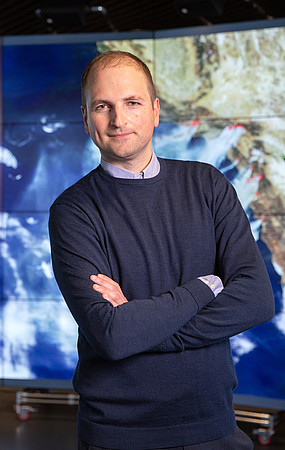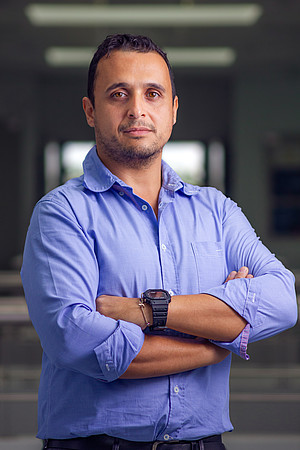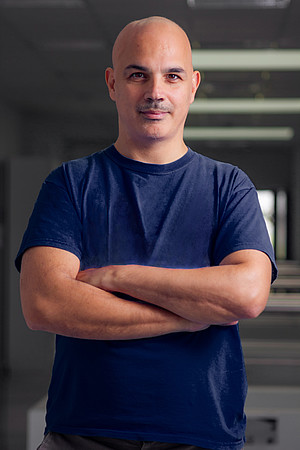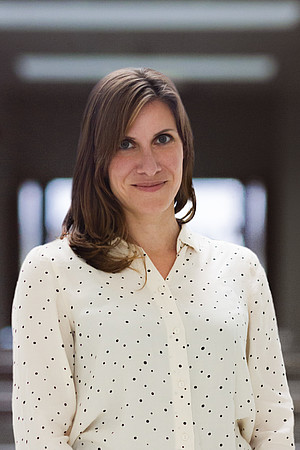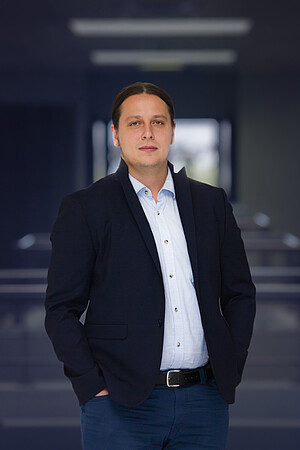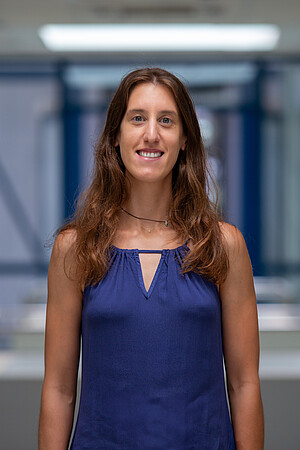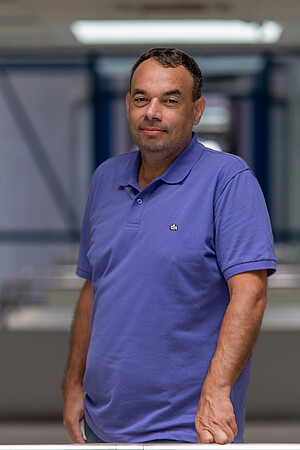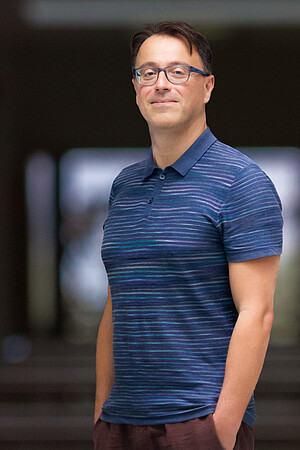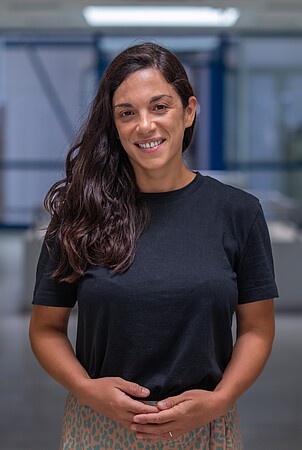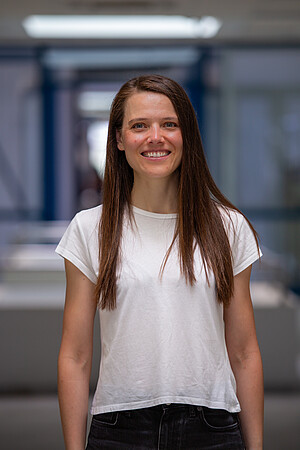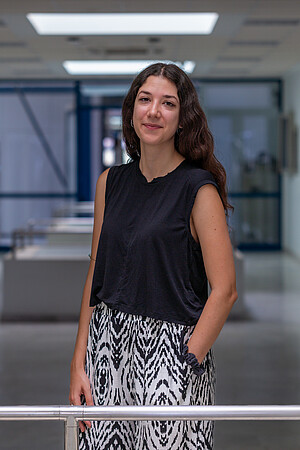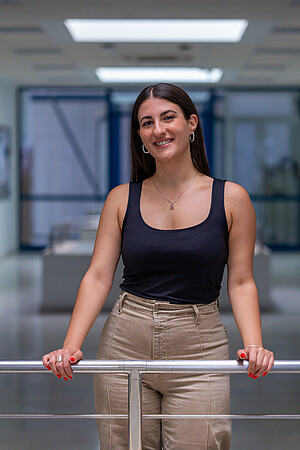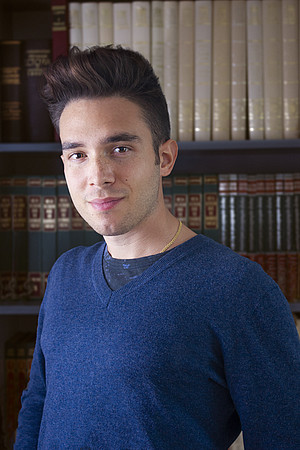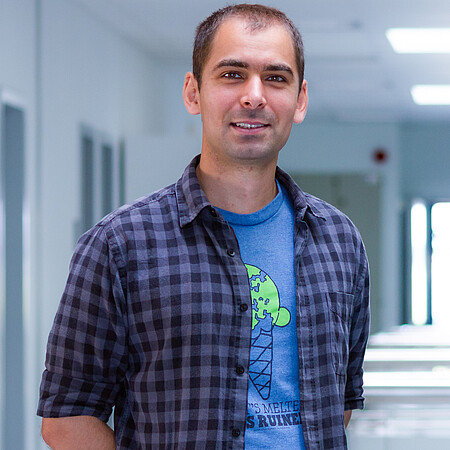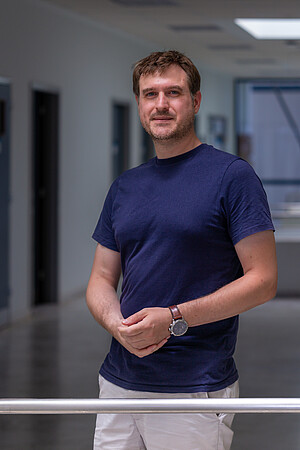Prof. Apostolos Voulgarakis
Lab Director, AXA Chair in Wildfires and Climate
Prof. Apostolos Voulgarakis holds the AXA Chair in Wildfires and Climate, based at the Technical University of Crete. He is the Director of the Atmospheric Environment and Climate Change Lab, a dynamic, growing group studying the nexus between climate change, atmospheric pollution, and wildfires. He is an expert on global atmospheric and Earth system modelling. In particular his work has focused on fire-climate interactions and the role of fire in driving the variability of aerosols and other radiatively important constituents in the atmosphere. Following a BSc in Physics (AUTh, 2002), an MSc in Environmental Engineering (TUCrete, 2004), and a PhD in Atmospheric Chemistry (Cambridge, 2008), he held research positions at the NASA Goddard Institute for Space Studies and Columbia University (2009-2012), before moving to Imperial College as a Lecturer, Senior Lecturer, and Reader, between 2012 and 2019. In partnership with the UK Met Office, Voulgarakis and his team led the development of the first fire model (INFERNO) incorporated into the UK’s Earth system model (UKESM1), which provides the basis for the UK’s official long-term climate and Earth system projections. He has led and been involved in several other international collaborative research projects variously funded by NASA, the European Commission, the UK Natural Environment Research Council, the British Council, and the UK National Centre for Earth Observation, the General Secretariat of Research and Technology, Greece, involving collaborators from around the world (the UK, US, China, India, Greece, France, Norway, amongst others). He has also held major roles in various global model intercomparison projects, such as the Atmospheric Chemistry & Climate Modelling Intercomparison Project (ACCMIP), the Precipitation Driver Response Model Intercomparison Project (PDRMIP), the Fire Model Intercomparison Project (FireMIP), and the Chemistry-Climate Model Initiative (CCMI), and was a Contributing Author in two chapters of the IPCC’s Fifth Assessment Report (AR5).
Manolis Grillakis
Dr. Gryllakis is a researcher at the Technical University of Crete, specializing in hydrology and drought studies, as well as their modeling using land surface models, and assessing the impacts of climate change across various environmental sectors. He has participated in 20 research projects, mainly international (FP6, FP7, H2020, ESA), focusing on topics such as climate change impacts across sectors, land surface modeling, remote sensing, extreme events (droughts and floods), hydrological simulation, water resources management, wildfires and their relationship with climatic parameters, as well as their hydrological impacts. He has (co-)authored 64 scientific publications and over 80 conference papers. He also served as a lead author of the Climate and Environmental Change in the Mediterranean First Mediterranean Assessment Report (MedECC-MAR1).
Post-Doctoral Researchers
Irini Boleti
Irini is a Postdoctoral researcher working on the interaction between wildfires and climate as well as the impact of climate change on wildfires. Her work is part of the CERTAINTY project, which focuses on the interactions between aerosols and clouds. More specifically, she studies the effect of wildfire emissions on clouds in present-day conditions compared to pre-industrial times. She is a physicist with a specialization in atmospheric and climate physics and holds a PhD in statistical modelling of air pollution. She has worked in Switzerland and the Netherlands in universities as well as reinsurance companies before joining TUC. Her experience includes research in atmospheric models for air pollution and statistical models characterizing air pollutants concentrations in relation to meteorology. Finally, in the reinsurance world she has studied the risk of high impact natural catastrophe phenomena, such as hurricanes and windstorms.
Email: eboleti@tuc.gr
Iulian-Alin Roșu
Iulian-Alin Roșu is an Erasmus+ Trainee Romanian PhD student, specializing in fractal analysis, chaos theory and atmospheric physics. His current research involves the analysis and modelling of wildfires and wildfire scars using fractal and spectral theory, and the development of novel wildfire modelling, risk-assessment and data processing techniques. He has participated in 1 national research project and in a research internship in Turin, Italy, on the subject of atmospheric modelling. He has co-authored 10 scientific publications and has participated in 10 conferences, 6 of which were international.
Eleni Dovrou
Eleni Dovrou is a postdoctoral researcher specializing in Atmospheric Chemistry and Health Effects. She graduated from the Technical University of Crete with a degree in Environmental Engineering and completed her PhD in Engineering Sciences at Harvard University. Her PhD thesis focused on molecular level reactions occurring within cloud droplets, and on analytical methods of identification and quantification of sulfur-family species. She has worked as a researcher in Germany and Greece, investigating the health effects of atmospheric pollutants and the indoor air quality. Her current research includes the modeling of air quality considering future conditions, and the effect of extreme events.
Candice Charlton
Candice is a Postdoctoral Researcher working on developing a seasonal wildfire forecasting framework that adapts to region-specific driving conditions for wildfire in partnership with AXA Climate. She is an Energy and Environmental Physicist with a PhD in Applied Physics, which focused on the statistical modelling of long-term seasonal wildfire risk potential in Jamaica under a changing climate. Her thesis research contributed to the development of Jamaica's Bushfire Warning Index. She has research experience investigating climate change and variability in the Caribbean region, working on several projects funded by the Caribbean Development Bank and the World Bank as a member of the Climate Studies Group at the University of the West Indies, Mona.
Research Associates
Konstantinos Seiradakis
Konstantinos Seiradakis holds a master’s degree in Environmental Engineering from Technical University of Crete since 2005. Upon his graduation, he has been working as research engineer in several research programs including: 5DARE, Helix, Cascade, ReCare, Impact2C, SimFlood and Hydrate. Konstantinos has extended experience in the analysis, design, configuration and implementation of Geographic Information System. Also, as part of his research work Konstantinos has extended the capabilities of those systems by programming and integrating custom modules, to satisfy project requirements that would not otherwise be covered by out of the box GIS platform capabilities. To support his research work Kostas is working on streamlining the integration of a reference research environment to support modern DevOps capabilities, Continuous Development / Continuous Integration, covering all necessary security requirements and of course being able to support the resilient and efficient processing of vast amounts of geographic and scientific data supporting all modern big data architectures. The reference environment is based on the integration of several platforms and technologies such as Microsoft Windows, RedHat/Centos Linux, Virtualization, OpenMPI/IntelMPI and multiple custom modules and processes that have been developed during Kostas applied research efforts.
Manolis Petrakis
Manolis Petrakis is a physicist with expertise in computational physics, holding a master's degree in geostatistics. His dissertation focuses on developing computationally efficient non-stationary kernels for Gaussian processes using techniques from statistical physics. These kernels have potential applications in extreme event modeling. Previously, Manolis has worked on fracture models to study the distribution of earthquake interevent times and on anisotropy estimation in Gaussian random fields for automatic interpolation of environmental datasets. Currently, he is a member of the Atmospheric Environment and Climate Change laboratory, where his research investigates the impacts of wildfire emissions on atmospheric composition and on the assessment of their role in present-day climate. His research is funded by the Hellenic Foundation of Research & Innovation.
Chrysa Vamvakaki
Chrysa Vamvakaki is a physicist with a master’s degree in Meteorology, Physical Oceanography and Climate from Utrecht University. She has research experience in physicochemical ocean, river and atmosphere data processing and analysis. She has also worked on numerical models for the investigation of the environmental state of coastal and marine environments. Currently, Chrysa is a member of the Atmospheric Environment and Climate Change laboratory, and her work focuses on studying the impacts of wildfire emissions in the atmosphere. More specifically, she studies trace gases and aerosols, while conducting simulations with an atmospheric chemical transport model using different biomass burning emission datasets over multiple years.
PhD Students
Dimitra Tarasi
Dimitra Tarasi is a geologist with a master’s degree in Environmental Engineering. She is currently a PhD student investigating how the present-day atmosphere is influenced by fire emissions from boreal forests and peatlands and exploring how the future of the climate system will be impacted by the changing wildfire regimes at high northern latitudes. Her research, as part of the AXA research program (AXA Chair in Wildfires and Climate), focuses on developing a peatland and thawing permafrost burning modelling capability for the current Earth System Models.
Rafaila Mourgela
Rafaila is an environmental engineer, currently focusing on the wildfire impacts on atmospheric composition and climate. Specifically, during her PhD, she will study the effect of wildfire emissions on a global scale from the pre-industrial period to the present day and the future, using earth system models. Her research is funded by the Hellenic Foundation for Research and Innovation (H.F.R.I).
Konstantina Paraskevopoulou
Konstantina is an environmental engineer with a degree from the Technical University of Crete. As an undergraduate, she studied the relationship between burned area from wildfires and the Aerosol Optical Depth (AOD) index, on a global scale using eighteen years of satellite data. During her PhD, she will study wildfire-atmosphere interactions in the context of a changing climate. Currently, she is investigating the role of trace gases and aerosols through multi-year simulations in a Chemical Transport Model, driven by various biomass burning emission datasets.
Anthi Zervaki
Anthi Zervaki is a PhD candidate in climate.tuc with a degree in Environmental Engineering. During her undergraduate studies, she was awarded two academic excellence prizes for her performance in her third and fourth years. In her dissertation, she conducted a comparison of NASA satellite burnt area data with ground-based records from the Fire Service in Greece. As part of her PhD, her research focuses on quantifying the impacts of wildfire emissions on air quality and climate under future scenarios, using the INFERNO and WRF-Chem models.
Visiting Members
Anastasios Rovithakis
Anastasios Rovithakis is a Postdoc Researcher at the University of Hawaii at Manoa Dept. of Atmospheric Sciences focusing on global warming and its effects on wild fire danger.
Matthew Kasoar
Matthew Kasoar is a Research Associate in Earth Systems Modelling - Leverhulme Centre for Wildfires, Environment and Society
Based at the Leverhulme Centre for Wildfires, Environment and Society, my research involves using state-of-the-art computer models to help researchers across the Centre understand the impacts of wildfire on the atmosphere and air quality, and predict how fire regimes may evolve under a changing climate.
Emmanouil Proestakis
Emmanouil Proestakis graduated from the Applied Mathematics and Physics Department of the National Technical University of Athens (NTUA) in 2011. He received his M.Sc. in the field of “Environmental Physics” from the Institute of Environmental Physics (IUP) of the University of Bremen, Germany in late 2013.He acquired his PhD diploma from the Section of Applied Physics of the Physics Department of the University of Patras in June 2018.

